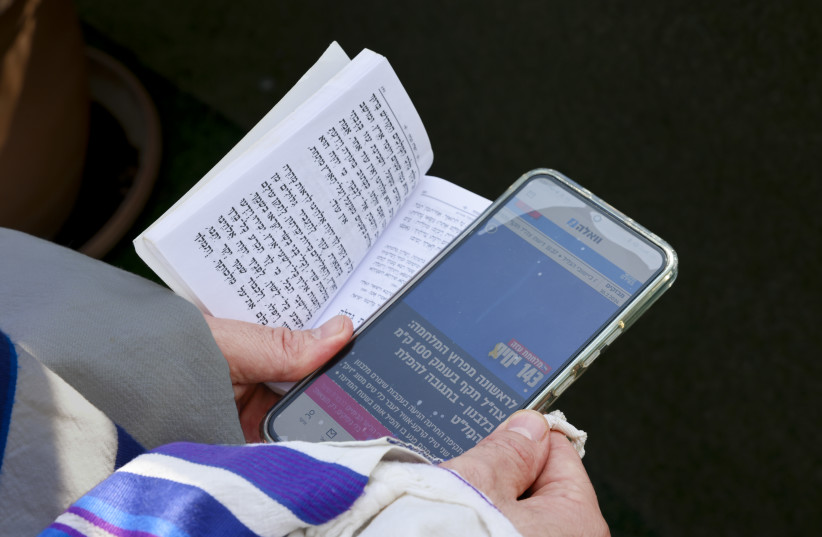It isn’t only ultra-Orthodox Jews who frequently object to smartphones – although stores in haredi neighborhoods report that some have both a “dumbphone” – with minimal features – and a smartphone to avoid community and rabbinic pressures. There are people around the world who purposely choose a cellphone with only minimal services, even though they can afford a smartphone and they are easily available.
In a world where more and more services and social interaction are based on mobile apps, a smartphone has become close to a necessity. Despite this, some people avoid smartphones and instead use a dumbphone – an anachronistic technology is an unusual choice when many government systems, business services, and interpersonal relationships make use of the diverse communication methods presented by smartphones. However, dumbphones are being increasingly (re)adopted by individuals seeking, among other motivations, a low-distraction digital handset.
New research from Aalto University in Finland and the US has investigated why some people choose not to use smartphones and what the consequences are. They published the results of their interviews with eight traditional dumbphone users, five designer dumbphone users, and two designer dumbphone developers. Their findings highlight both the impact of the digital disconnection movement and dumbphones as tools for mental and physical health, practicing religious devotion, and enacting political disaffiliation.
The study, which appears in the prestigious journal Proceedings of the ACM on Human-Computer Interaction under the title “Swapping 5G for 3G: Motivations, experiences, and implications of contemporary dumbphone adoption,” is based on interviews with participants who chose to give up their smartphones or never had one—a decision that can make daily life more burdensome, limit choices, and sometimes even increase risks.
‘Custom dumbphones can be expensive, and some of the European participants had even ordered phones from Africa that weren’t available on the domestic market,’ said Prof. Janne Lindqvist, who heads the university’s computer science department.

The participants all came from countries and social surroundings where smartphones were available and the obvious choice. Their reasons for turning them down varied. Some wanted to get away from the distractions a smartphone unavoidably causes, while others wanted to avoid online surveillance. For parents of under-age children, the main reasons were a desire to keep their offspring away from social media and to avoid the temptation of a smartphone interrupting time with their kids.
Choices were made due to religious reasons
For a few, there were religious principles behind the choice. Annabel Rothschild, a doctoral researcher at the Georgia Institute of Technology who was on the team specifically mentions ultra-Orthodox Jews. “For adherents of haredi Jewish practice, the form factor of the phone played an important role because it doesn’t appear too technically precious or novel, and the sometimes-cumbersome functionality was seen as a way to prevent excessive use. Aside from necessary communication technologies such as voice calls, text, and sometimes GPS, dumbphones usually have little else, which is valued by users as a way to focus on what they feel really matters,” she wrote.
People without smartphones have to get inventive. Refusing to use a smartphone caused all sorts of inconveniences in people’s daily lives, starting with the difficulty of finding a durable dumbphone. It also proved difficult to make various purchases, deal with two-factor authentication, and meet employers' expectations of reaching employees outside working hours or locations.
At the height of the pandemic, mobile device-based access rights around the world had also limited the interviewees’ mobility. In the worst cases, the lack of a smartphone also made life unsafe in the middle of the night, with access to quick-call rides limited to mobile apps. “We found that in many societies, all sorts of tricks had to be invented to make life without a smartphone work,” Lindqvist added.
Some of the participants chose to use technical workarounds – ways to overcome a problem or limitation in a program or system – such as stand-alone devices that replaced individual smartphone functions. Many also used a family member’s or acquaintance’s smartphone when the need arose. Thus, in practice, leading a smartphone-free life requires either technical know-how or flexible friends and family.
